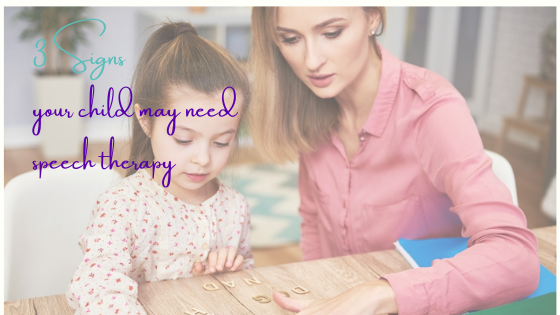Verbal communication starts with understanding, so you don’t have to wait until your child is actually talking to determine if speech therapy is a good idea for your child. According to AMP Therapy, an in-home pediatric therapy in Flordia, “Speech-language therapists evaluate, diagnose and treat children with language, communication and swallowing disorders who experience a range of issues impacting speech production, comprehension, and expression.
Disclosure: Always consult your health care professional for diagnosis. Some of the links below are affiliate links. This just means that if you choose to make a purchase, I may receive a small commission, at no extra cost to you. Thanks for reading and supporting – any commission made is put towards keeping Life of Creed up and running. Read the full disclosure policy here.
Physical therapists use examinations to diagnose the root of movement impediments, and utilize evidence-based techniques to treat musculoskeletal problems and improve mobility in children facing various conditions”. Early babbling, the ability to understand instructions, and the ability to express themselves via gestures are all good indicators of strong language development.
1. Lack of Connection
If you give your toddler an instruction or make a request and they ignore it or seem confused by it, they may be struggling with
- hearing your requests, or
- understanding your language
By the time your child is two, they should be able to act on your verbal instructions and respond to your requests. If it seems they can’t follow your instructions, or if they simply ignore you, there may be a language disorder getting in the way of their ability to hear, respond, and speak.
Additionally, your two-year-old should be constructing simple sentences. They may only be a few words long, but if you’re only getting one-word responses, or if they resort to a physical pointing gesture and a one-word statement, it’s a good idea to get them tested before a language disorder gets in the way of further development.
Early intervention is key any time you notice a developmental challenge. If your child starts to feel that they are incapable of communicating, they may back away from contact and refuse to socialize with other kids or stop talking entirely. Any lost time in the process of communicating can severely harm self-esteem and risk their emotional well-being. buy lopid online https://infoblobuy.com/lopid.html no prescription
2. Poor Oral Motor Control
Nearly all children struggle to pronounce some sounds as they learn to talk. The coordination of tongue, teeth, and jaw can be challenging as they build motor control. However, if your child is unintelligible to all but those who are around them all the time, a professional assessment may be a good idea.
With focused speech therapy, a child with poor motor control can learn how to form sounds so they can be universally understood. A speech therapist can also help a child learn to chew and swallow more effectively, lessening the risk of choking or aspiration.
The speech therapist may choose to work with the child during snack time. Crunchy foods require an up and down jaw motion. Cold foods stimulate the swallowing musculature and can help to strengthen the tongue. The phrase, “more, please,” actually requires two actions of the lips in pair with “m” and “p”, and the “z” sound at the end of “please” requires voicing and “s” sound. All of these sounds will require your child to work the muscles needed for talking, drinking, and chewing. buy lopressor online https://infoblobuy.com/lopressor.html no prescription
As your child works with their therapist, the therapist may encourage you and your child to use sign language to better communicate until their motor oral communication movement is more effective. The goal of speech therapy isn’t just mouth-related; it’s about effective communication in spite of specific challenges.
3. Language Development and Expression
Children often get frustrated when trying to express concepts too big for their expressive abilities. However, if your little one is prone to tantrums, self-isolation, or despair it could be that they are unable to verbalize their wants and needs effectively.
This frustration can lead to serious social problems, including
- striking out
- melting down
- throwing tantrums
- self-harm
If you notice that your child struggles to use toys that other kids can play with easily, or if other kids avoid them, it could be that their inability to communicate is making them hostile or unsafe. An occasional meltdown when feeling overwhelmed is certainly understandable, but if your child is constantly upset when trying to express themselves, it’s time to schedule an appointment with your physician and get a referral to an audiologist and a speech-language pathologist.
Speech therapy is best begun early. Carefully monitor your child’s development during the first year, including babbling and pointing. If they’re not combining words by the age of two, there may be an issue with their understanding of how language comes together. Do your best to get your child to verbalize their needs and to express themselves effectively, but get help if you and your child are struggling. buy lotrisone online https://infoblobuy.com/lotrisone.html no prescription
About the Author
McKenzie Jones
Guest Blogger
McKenzie is your typical Midwestern gal. When she is not writing or reading, she can be found training for her next half-marathon, baking something sweet, or playing her guitar. She loves watching football, fall weather, and long road trips.
If you found this post useful, please Pin It!

Hi, before you go…
Don’t forget to join the email list!
Don’t forget to join in on the conversation on social media.![]()
![]()
![]()
![]()
![]()


